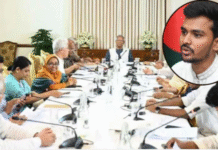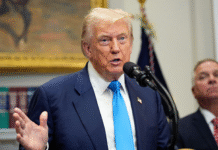
Liberation War Museum trustee Ziauddin Tariq Ali died with Covid-19 at Bangladesh Specialized Hospital this morning.
He breathed his last around 11:00am, confirmed Sarwar Ali, another trustee of the museum.
Tariq Ali was admitted to the hospital around a week ago, Sarwar Ali said.
His body was taken to Liberation war Museum premises around 2:30pm so that people can pay their tributes to him, he said.
He will be buried at Martyred Intellectuals Graveyard at Rayerbazar following namaz-e-janaza after Asr, he added.
Over the years, Tariq Ali and others developed an impressive collection of documents, official letters, photographs etc. covering the Liberation War.
In a special write-up — published in The Daily Star — marking Martyred Intellectuals Day in 2015, Tariq Ali wrote: “The objective of the Trustees of the museum has been that the ordinary citizen should take ownership of the museum. The citizens have done that, most emphatically. The museum has proved once again that Bengalis can be extremely generous when it comes to a good cause. The Trustees sensed that the ordinary citizen was proudly taking ownership of the museum from the day it began its journey, from the way they started referring to the small 2000 sq. ft. building in Segun Bagicha as ‘our museum’ and then when the new building was being built in Agargaon, in the way ordinary people donated (there is a school-girl in Brahmanbaria who gave us three and a half Takas from her tiffin money) to the building fund. Today the museum is not far from its avowed goal that more than half of the funding of this 102 crore building should be generated through the participation of the citizens. The government, on the other hand, has been outstandingly supportive, and despite being ordinary citizens, the Trustees are humbled by the love and respect that they get from the ordinary citizen, the news-media and the government.”
“The museum has played a very important role in the trial of those charged with crimes against humanity by the International Crimes Tribunal, 1973 by providing documents related to the war. It also helped build public opinion in favour of the trials during the last 5 years by holding many seminars on trials regarding crimes against humanity and the experiences of other similar courts on genocide, in which many noted international scholars have participated,” he added.









